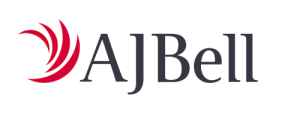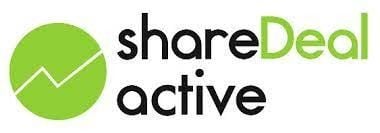During August, our net asset value (NAV) return was -0.8% and shareholder returns were -3.0%, in comparison to the FTSE All World Index return of -1.2%.
August was a weaker month for equities, with interest rates now expected to remain higher for longer and concerns about weakening economic data in Europe and China. The US 10-year Treasury yield ascended to cycle highs of 4.3% mid-month, in part due to continued hawkish rhetoric from central bankers, but also as a consequence of Fitch’s ratings downgrade of US government debt from AAA to AA+. Inflation continued to move lower, with year-on-year consumer price inflation in the US and UK rising by 3.2% and 6.8%, respectively, in July, and labour market tightness abating to a certain extent. While tighter monetary policy has had some impact on the problem of high inflation, the Federal Reserve expressed the need to continue to ‘hold policy at a restrictive level’ at its annual Jackson Hole symposium, pressuring equity valuations.
Energy stocks outperformed for the second consecutive month in August (+2.1%). Brent crude gained 3.9% over the month in sterling terms – a continuation of the upward trend in commodity prices we have seen this year. Concerns around liquefied natural gas (LNG) supply and upcoming strikes across Australian LNG facilities provided further support. While Europe has ample inventories to see through 2023, the risks to natural gas prices remain tilted to the upside given rising Chinese demand and the underlying tightness of the market. In contrast, utilities shares underperformed in August (-3.8%) as mild weather and high interest rates dampened second-quarter results. The sector saw some of the weakest results this season, with only a +0.4% upside surprise to earnings across US utilities. In contrast, the aggregate surprise across all sectors in the US was 9.2%.
On a regional basis, US shares declined the least (-0.1%), while Europe (-2.4%), the UK (-2.4%) and China (-7.7%) lagged the global benchmark. While economic data for the US remains relatively resilient, the effects of interest rate hikes are being felt more acutely in Europe. The eurozone composite purchasing managers’ index – which seeks to capture changes in the direction of economic trends – fell sharply into contraction territory in August, with its lowest reading since late 2020. The implications of tight monetary policy are also being felt in the UK, exemplified by the steep decline in house prices seen this month (-5.3% year-on-year), according to data from Nationwide. Despite this, the Trust’s European equity strategy delivered solid performance in August, outperforming the benchmark by 1.3%. After strong performance in July, spurred on by highly anticipated fiscal stimulus, Chinese equities retreated as investors grew impatient with the government’s slow rollout of further stimulus measures. Focus once again turned to China’s ailing property sector, with embattled and systemically important real estate firm Country Garden Holdings (-43.1%) facing possible default after reporting a $6.8bn loss for the first half of the year. Sterling was weaker over the month (-1.3%), which provided some support for UK investors.
Vertiv Holdings (+53.8%), a provider of equipment and services for data centres which is held at overweight to the benchmark, was the most significant contributor to relative returns in August. The company reported impressive earnings for the second quarter, featuring a 25% increase in organic sales growth (48% in the Americas) and material upgrades to full-year guidance. During the earnings call, Vertiv’s management noted the company is well positioned to benefit from the artificial intelligence (AI) tailwind, which will provide additional opportunities for data centres for many years to come. The Trust’s overweight position in MercadoLibre – South America’s Amazon equivalent – also performed well (+12.6%), again reflecting sizeable profit growth (113% year-on-year), powered by growing market share and strong e-commerce tailwinds in the region. Infineon Technologies ( 17.5%), the German chipmaker which is also held at overweight, was the most significant detractor as margins in the company’s key automotive segment came in below analyst estimates. Higher costs, along with equipment sitting idle as a consequence of weakness in the consumer electronics market, weighed on sentiment despite relatively strong share price performance this year.
We ended the month at a discount of 11.0%, widening from a discount of 9.0% at the end of July. Net gearing remained conservative at 5.0% (with debt at fair value) for month-end, reflecting our expectation that markets will remain volatile in the short term. Nonetheless, F&C Investment Trust’s corporate structure makes us well-placed to withstand further market volatility, and we remain focused on the long-term opportunities for the benefit of our shareholders.











